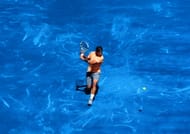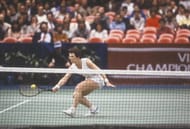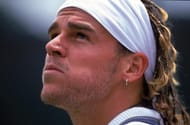“I wouldn’t like to use the term blackmailing, but they are definitely crossing the line. It’s not that India has only eight players, we have enough players to choose from and play the tie.” – Hiranmoy Chatterjee, AITA CEO.
Last year, AITA handed doubles specialists Bhupathi and Bopanna a two-year Davis Cup suspension for their refusal to partner Paes at the London Olympics. This time around, another controversy looms which could see eight of our players out of action at the Davis cup if no compromise is reached between AITA and the revolting players by January 10. Check out a more in-depth look at the situation by a teacher of mine, Ankan Bannerjee.
To summarise, players want their demands met, the association feels that they have accommodated the reasonable demands by the players and now there seems to be a stalemate. The demands begin from getting a full time physio, to revision of the prize money distribution and having more of a say in decision making. Now, it may seem that our associations are inept or our players are too demanding. Indian bureaucracy seems like a joke, what with all the controversies that crop up every other day. But riffs between players and federations aren’t isolated in India. We can have some context and appreciate our situation better if we look into situations in other countries where there have been disagreements. So, here are 8 situations where tournaments were boycotted or threatened to be boycotted by tennis players:
“The ATP and the tournament can do what they want. The only thing that I know is that if things continue like this, I am very sad but next year will be one less tournament in my calendar.”- said Nadal of the Madrid Open.
Nadal was furious at the blue clay court being used at the Madrid Open. It was different from the red clay courts used at other tournaments and was more slippery. The officials said that the blue makes it easier for the audience to follow the ball but these stars were not convinced. It remains to be seen if they will boycott it this year.
“They are saying it’s exactly the same as the red clay which is not true because there is a big difference. You are tripping and slipping and sliding all the time and winner will be the one who doesn’t get hurt until the end of the week because a lot of players fell down. Generally, it’s a new experience and the way it looks this year, hopefully the last experience.”- said Djokovic.
Nadal lost to Fernando Verdasco in round three and he was more infuriated than Djokovic. The former is more likely to boycott the Madrid Open unless the courts are changed.
We know Billy Jean King better from the ‘Battle of the sexes.” She has also played a more formidable role in ensuring equality for female tennis players. These days, men and women are paid equally most of the time. It wasn’t always like that. Back in 1970, Billy Jean King led the way for herself and a few other tennis players to boycott professional tennis tournaments since the men were paid almost 10 times as much as the women. They went a step further and started a tournament of their own, the Virginia Slims tournament. This led to the US Open giving more consideration to the female players.
Back in 2009, Jewish leaders called the Women’s Tennis Association for a boycott of the $2 million event and cancellation of the 2010 Dubai games. It was because top Israeli player Shahar Peer was barred from competing since the United Arab Emirates, which has no diplomatic links with Israel, denied her an entry visa into the country. For their part, tournament officials insisted that they were doing so, keeping the best interests of the player in mind. They said that local fans would have boycotted the event had she been allowed to participate and they couldn’t ensure her safety either. The WTA allowed the event to be staged. “Practically speaking, our athletes were already there, ready to play and we did not really have much time to react to the situation. Just because Shahar was penalized, she did not want to see all her fellow players penalized,” said WTA chief Larry Scott.
The Australian Open is set to begin in a week. As early as last August, the top players were threatening to boycott it over the low prize money. Their concern was not the prize money given to the winners, but to those players who exited in the early rounds. Tennis is a top heavy sport, the best in the business takes the most of the pie and they were trying to look out for the rest of the bunch who departed early in the rounds. They argued that those players also pay their way, travel and incur expenses and ought to be compensated as such.
“The guys ranked 80 to 90 to 1000 in the world aren’t making the big bucks right now, and they’re paying their own expenses, which you don’t do on a professional sports team.”- said Andy Roddick.
Their demand was to increase the total pile of prize money from about $25 million to over $60 million. The players threatened actions such as staging alternate events which are concurrent with the Grand Slam tournaments and skipping the Grand Slams altogether. In response, the Australian open increased the prize pile by $4.15 million.
Back in 2004, the WTA players threatened to boycott the Germany Olympics if Germany’s Anca Barna and Marlene Weingaertner were not cleared by the German Olympic Committee to compete in Athens. With the top 56 ranked players earning automatic entry into the Olympics, Barna and Weingaertner, ranked 46th and 52nd respectively at the time, qualified for Athens based on the ITF’s criteria.
But the German Olympic Committee had its own criteria – that a players should reach a semi-final of a Grand Slam or the final of a tier-one event, which neither player met. The boycott was later averted when Larry Scott, WTA chief said they had opted not to withdraw the tour points of players, which they were going to.
In 2009, Israeli Jewish professional tennis players were banned from the Qatar Open and Dubai Tennis Championshps as per the Arab Muslim boycott on Israel and accompanying apartheid travel ban against Israeli Jews.
Roddick was the only player who spoke out against it. “I really didn’t agree with what went on over there. I don’t know if it’s the best thing to mix politics and sports, and that was probably a big part of it,”Roddick said.
He didn’t just speak out, he pulled out of the 2009 Dubai Tennis Championships. Now that’s standing up for what you believe in.
Back in 2010, tennis players from Spain, Maria Jose Martinez, Anabel Medina, Arancha Parra, Carla Suarez, Nuria Llagostera and Lourdes Dominguez, voiced their displeasure against their tennis federation. They were disgruntled about many issues such as the reduction in prize money, the lack of hard court surfaces in the country and what they considered to be poor medical services in domestic tournaments.
“We are very worried about the lack of support from the RFEF in many sporting, structural and global areas of women’s tennis both for the present and looking for the future. We want the RFET to acknowledge its errors and solve a large number of questions.” their statement said.
Back in 2001, Gustavo Kuerten led some players to threaten a boycott unless Wimbledon organizers change the seeding system. Andre Agassi was against it however and said that the seeding would be irrelevant as he’d still play against the same number of players.
What is the foot injury that has troubled Rafael Nadal over the years? Check here




